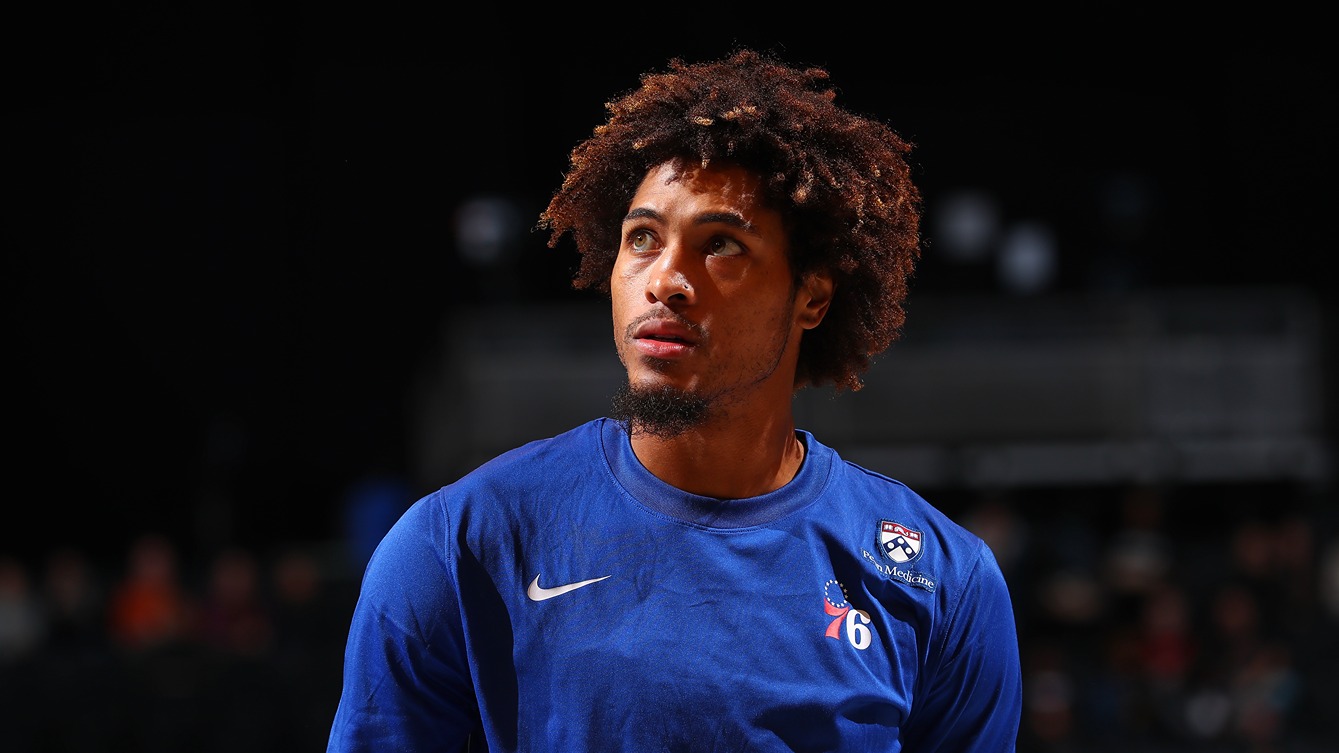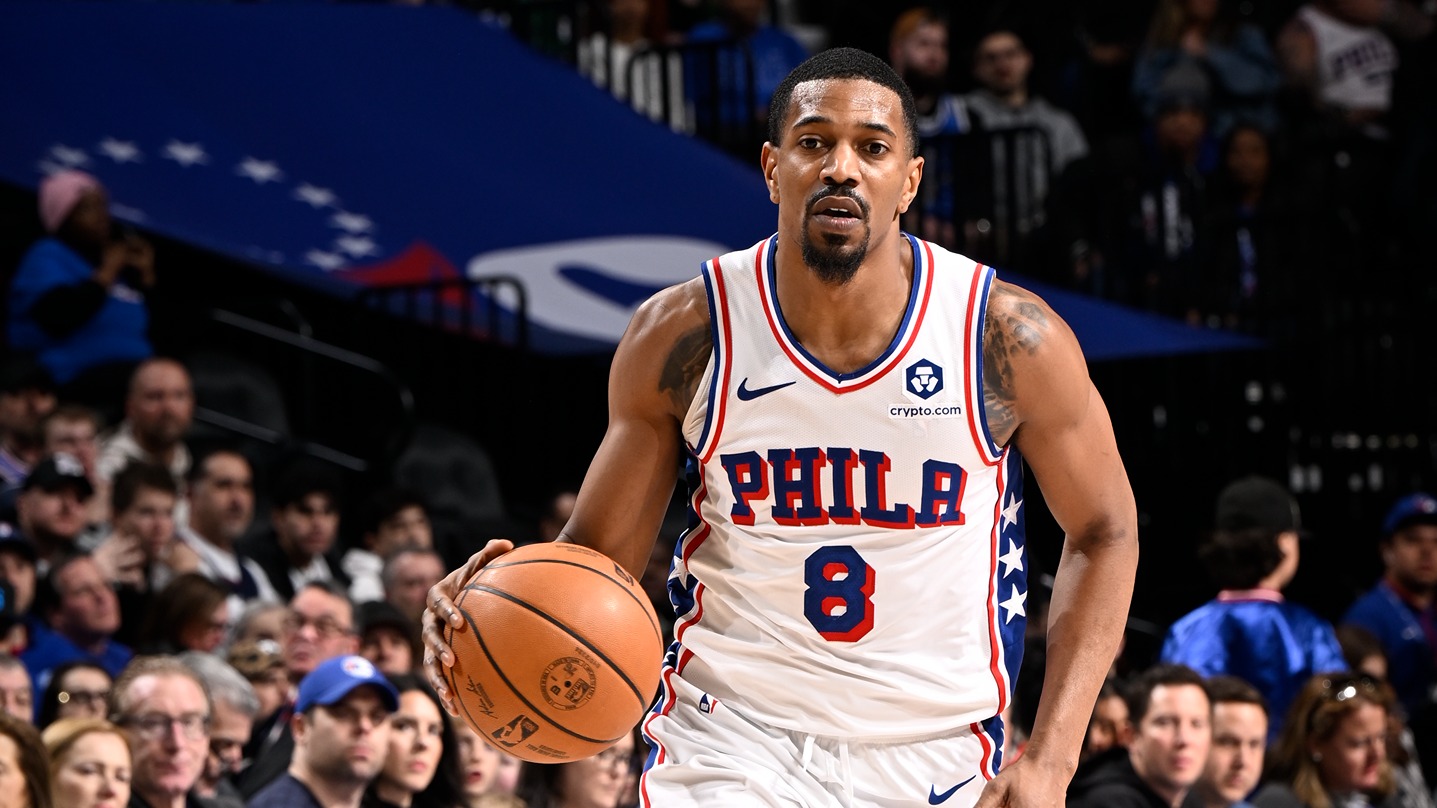Reviewing major questions raised by Embiid's orbital fracture, concussion originally appeared on NBC Sports Philadelphia
In a statement Friday night, the Sixers said Joel Embiid is out after suffering a right orbital fracture and mild concussion during the team's Game 6 win Thursday over the Raptors to advance to the second round of the playoffs.
That impressive blowout to slam the door on Toronto's season now feels far less significant. The Sixers will instead face questions Saturday following practice about injuries to a foundational player, team leader, and scoring champion.
Get Philly local news, weather forecasts, sports and entertainment stories to your inbox. Sign up for NBC Philadelphia newsletters.
Here are a few of the initial areas to consider following Friday's news:
When might Embiid be back?
There's nothing definitive here yet.
Philadelphia 76ers
Complete coverage of the Philadelphia 76ers and their rivals in the NBA from NBC Sports Philadelphia.
Players must clear specific steps to return from a concussion; it's not necessarily a smooth, easy process, even with the Sixers calling Embiid's concussion "mild."
Embiid missed 10 games after suffering a left orbital fracture and concussion in 2018 -- eight regular-season games and the start of the Sixers' first-round series that year against the Heat -- but it's notable that surgery was part of the return-to-play process. The best-case outcome this time around seems to be Embiid not needing surgery and the Sixers' medical staff soon feeling that a protective mask would provide sufficient protection.
Of course, even that scenario would not be risk-free or guarantee Embiid adjusting flawlessly. Embiid admitted after the Sixers' Game 5 loss to the Raptors that his injured right thumb led to him playing less "freely," and this would be another major injury (likely with additional equipment) to play through.
What are the other center options?
The Sixers' centers behind Embiid are 21-year-old Charles Bassey, 22-year-old Paul Reed, 33-year-old DeAndre Jordan and 37-year-old Paul Millsap.
Bassey missed the Raptors series because of a right shoulder injury, though he was working out and appeared to be shooting without restriction by the end of it.
Reed's best trait isn't reliability, but he's a skilled rebounder and switchable defender who's shown he's capable of NBA production in other ways tied to relentless effort. Fouling too frequently would be a larger worry in a role that requires more minutes.
Before the playoffs, head coach Doc Rivers framed the Sixers' backup center situation as Reed being his choice against smaller fives and Jordan his preferred option against bigger fives. Bam Adebayo is 6-foot 9, but Miami does use one bigger center in 7-footer Dewayne Dedmon.
Millsap hasn't played since March 29. Rivers asked him that night to back up Embiid and guard Giannis Antetokounmpo, which didn't go well at all.
Another approach Rivers could take is starting Danny Green and Matisse Thybulle, a duo that's been very successful the last two seasons, and not using a conventional center to begin games. The team could ask Tobias Harris to defend Adebayo, switch often, play zone defense, or do a bit of everything. Variety and unpredictability would make sense in this spot.
Does depth become a bigger problem?
While it's obvious James Harden, Tyrese Maxey and Harris must handle more without Embiid, that trio shouldn't all play 48 minutes every game.
Thybulle's had encouraging moments alongside Harden, but his offense was a major detriment in his last appearance, which was the Sixers' Game 5 loss to Toronto. And he sat out half of the series' games because he's not fully vaccinated and therefore ineligible to play in Canada.
Shake Milton and George Niang should be capable of holding their own. Furkan Korkmaz is a theoretical zone-buster, but the Sixers certainly won't count on that.
Playoff rotations don't need to be expansive, and it's nice that the Sixers have quality players besides their two All-Stars. But yes, depth is now a greater concern.
What changes stylistically?
Defensively, the Sixers were relatively open to experimentation after acquiring Harden in February. Zone's been good for them at times, and it also happens to be a scheme Thybulle thrived in at the University of Washington.
Maxey's as fast as anyone in the open floor. The Sixers always want to capitalize on that strength, and Embiid's absence might push them to stress transition offense a bit more. Though Harden is comfortable with pick-and-rolls and deliberate isos, he's also talented at scanning ahead and making advance passes.
Harris could take some of Embiid's post-ups, although that might detract from the decisive, selfless style he's embraced since the Harden trade. Spreading the floor and putting up three-pointers without hesitation sounds like a solid concept. Replacing Embiid's league-leading 11.8 free throw attempts per game probably isn't realistic, but a team effort on that front would also be helpful.
Are the Heat beatable?
The Sixers did beat Miami without Embiid (back soreness) and Harden (left hamstring injury recovery) on March 21, so the literal answer here is, "Yes."
A seven-game playoff series is tougher, especially against a team led by an experienced, accomplished head coach in Erik Spoelstra that has veterans who shouldn't be shaken if the Sixers "steal" a game or two early in the series with Embiid out.
Still, the Heat also have health issues, including Jimmy Butler's right knee injury and Kyle Lowry's left hamstring injury. In addition to Butler and Lowry, Tyler Herro (respiratory illness), P.J. Tucker (right calf) and Caleb Martin (left ankle) did not participate in Miami's Friday practice.
The Sixers will correctly enter the series as underdogs, but an upset doesn't seem preposterous, especially if their luck swings.



